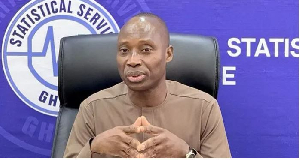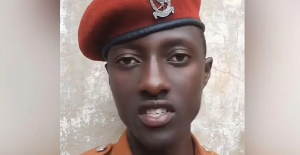By Kofi Ata, Cambridge, UK July 10, 2015
Days before the Talensi by-election on July 7, 2015, different postulates were made by NDC and NPP and relied upon to predict what will happen in the 2016 General Elections. In fact, both President Mahama and Nana Akufo-Addo, NPP’s 2016 presidential candidate predicted that the Talensi results will be a barometer for what to come in 2016 (see, “Talensi is a dress rehearsal for 2016 – Mahama”, and “Talensi election will test NPP, NDC popularity – Akufo-Addo”, Ghanaweb July 5 and 6, 2015 respectively). Since the election, a number of analyses have been conducted on the results, including those of Dr Michael J K Bokor and Dr Arthur Kennedy (see, “The NDC regains Talensi and deflates the NPP” and “Arthur Kennedy shares Lessons from Talensi”, Ghanaweb July 9 and 10, 2015 respectively). This article is a contribution to the analysis but from a different perspective.
Let me put on record that by-elections by their very nature are not good for predicting what would happen in a general election. A number of factors account for why they are unreliable in predicting the future fortunes of political parties and candidates. They occur for various reasons and the reason for the by-election itself could even determine the outcome. For example, a tragedy such as death of a legislator causing a by-election could result in the party of the deceased legislator gaining sympathy votes and not only retaining the seat but probably increasing its majority depending on the turn out. On the other hand, a resignation or expulsion due to a scandal by the incumbent could result in his/her party losing the seat even in a stronghold constituency of the party though success could result in reduced majority when s/he was not a candidate. Again, a resignation caused by defection to another party could result in either the then incumbent party retaining the seat or the old legislator retaining or regaining the seat for his/her new party as it happened when a Conservative MP defected to UKIP and won the seat in a by-election. This was because he was very popular constituency MP though unpopular in his party. However, if he had been unpopular in the constituency he would have lost the seat. In other by-elections, the electorate may punish the party in power for its performance, bad policies and vice vers?.
By-elections also attract too much attention on the constituency than would normally have received in a general election as we saw in Talensi. The big shots in Ghanaian politics from all political parties were in the constituency to campaign for votes. President Mhama, Nana Akufo-Addo, Dr Paa Kwesi Nduom, Samia Nkrumah and others were all there. Last but certainly not the least, abuse of incumbency is at its worst in all by-elections, such as policy announcements specifically targeted at voters in the constituency to buy votes are common even in the developed democracies let alone in a developing democracy such as Ghana. Such attention and vote buying through instant policy decisions and development initiatives as witnessed in Talensi are simply not feasible on a national scale in a general election. For these reasons, by-elections are highly unreliable to use to hypothesize the outcome of future general elections.
For an objective and apolitical analysis of the Talensi results, it would be misleading to just evaluate the results of 2012 and 2015. This is because the 2015 factors were peculiar and not present in 2015. These included the division within the NDC resulting in skirt and blouse voting by NDC members, supporters and sympathisers. Again, the NPP candidate had unique qualities by virtue of coming from a local royal family with goodwill and patronage that an ordinary candidate could not possess. Therefore for a reliable and fair analysis the reasonable baseline data to evaluate are the 2008 and 2015 results because the conditions were similar.
I restrict the analysis to the three main candidates from NDC, NPP and PNC. The votes gained in 2008 were as follows:
NDC 9,548 (44.29%);
NPP 7,469 (34.64%); and
PNC 4,394 (20.38%).
The total valid votes were 21,447, including all the candidates.
The results for 2015 were:
NDC 10,366 (42.31%);
NPP 6,845 (27.93%); and
PNC 6,836 (27.9%). Total valid votes were 24,499, including other candidates.
Form the results, though NDC increased its total votes from 9,548 in 2008 to 10,366 in 2015, the percentage share decreased from 44.29% in 2008 to 42.31% in 2015 which is a higher turnout. This should be a concern for NDC especially, as it’s the party in government as well as the constituency being its stronghold, despite the abuse of incumbency and particularly if there is low turnout in 2016.
NPP’s total votes and percentage share both went down from 7, 469 in 2008 to 6,845 in 2015 and 34.64% to 27.93% respectively. This should also be a concern for NPP but not as much as NDC because it’s in opposition and lacks the advantage of incumbency abuse. However, despite the current economic situation if NPP could not benefit from the general dissatisfaction of the electorate, then what could happen if the economic situation changes for the better by 2016?
The party that should be celebrating is PNC as it increased both its total votes and percentage share from 4,384 in 2008 to 6,836 in 2015 and 20.38% to 27.9% respectively.
What do the results predict for the 2016 general elections? For the parliamentary election a higher turnout will favour PNC more than NDC and NPP but because the constituency is an NDC stronghold, NDC is most likely to retain the seat unless the division within the party resurface in 2016 or an exceptional local candidate contests on behalf of either NPP or PNC.
For other reasons such as Mahama’s performance, dumsor and others, the Talensi results cannot be relied on to predict the Presidential and Parliamentary Elections outcome nationally in 2016. Moreover, from the results of presidential elections of 2008 and 2012, Talensi voters seem to be very loyal to NDC’s presidential candidates. A generalised national hypothesis based on Talensi voting patterns would be very misleading and in fact, a discredited academic exercise. At best, it could be used to predict results in NDC strongholds and probably NPP strongholds.
In conclusion, what happened in Talensi last Tuesday cannot be and will not be a barometer for what is expected in the December 2016 General Elections, especially the Presidential Election. Rather, it‘s only an indication that NDC is most likely to retain the seat in 2016 and Mahama will maintain his huge majority. Any of the two main political parties (NDC and NPP) relying on the results to predict victory or defeat will be making a catastrophic political judgement. This is because some of the main issues of concern to the electorate in election battle grounds were not present in Talensi. Moreover, 18 months is a very long time in politics and anything can happen. My advice is, just learn from Talensi but do not over rely on it to predict the future.
Kofi Ata, Cambridge, UK
Opinions of Sunday, 12 July 2015
Columnist: Ata, Kofi














